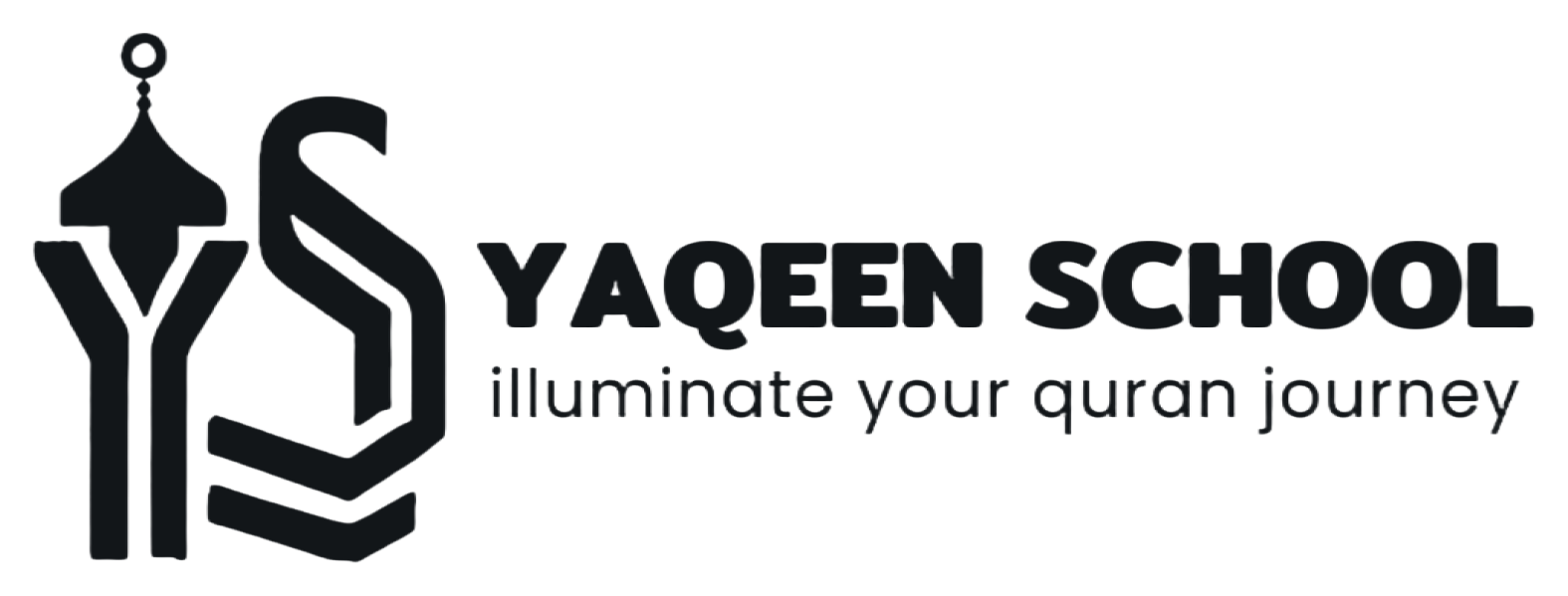Blog
Quranic Ijazahs: A Comprehensive Guide by Yaqeen School
- February 11, 2025
- Posted by: [email protected]
- Category: Uncategorized
 What is a Quranic Ijazah?
What is a Quranic Ijazah?
A Quranic Ijazah is a certificate granted by a Sheikh to a student, certifying that the student has completed the recitation of the entire Quran from memory, with mastery of the rules of Tajweed for the narrated version(s). Thus, the student becomes qualified to teach it, and their chain of transmission is connected to the Prophet Muhammad (peace be upon him), becoming part of the chain of transmitters of the Book of Allah.
Conditions for the Grantor and Recipient of a Quranic Ijazah:
There are common conditions for both the grantor and the recipient: Islam, sanity, puberty, trustworthiness, and avoidance of impropriety and causes of sin.
Conditions for the Grantor (Sheikh):
- Acquisition of Islamic knowledge.
- Knowledge and mastery of Tajweed rules, Waqf and Ibtida (pausing and starting), script, connection, and breaks.
- Knowledge of Quranic sciences and Tafsir (interpretation).
- Knowledge of the chains of transmission of the reciters.
- Knowledge of the Arabic language.
- Memorization of the Quran and knowledge of the principles of recitations.
Conditions for the Recipient (Student):
- Justice: The person must be just, not a sinner or persistent in overt disobedience, as they will bear the responsibility of preserving and teaching the Quran.
- Precision: The recipient must have precise knowledge and understanding, be familiar with the recitation and narration they are transmitting from their Sheikh, and understand how to pause and start.
- Mastery of Quran Memorization: Memorizing the entire Quran perfectly from memory, with mastery of Tajweed rules, articulation points, and understanding of the meanings and Tafsir.
- Reciting to the Sheikh Letter by Letter: Reciting the entire Quran from Al-Fatiha to An-Nas, adhering to Tajweed rules, without errors in recitation or Arabic language.
- Memorizing the Jazariyyah Introduction to Tajweed: Memorizing and understanding the text of the Jazariyyah, which includes most Tajweed rules.
Difference Between Sanad (Chain) and Ijazah (Certificate):
- Ijazah: A certificate granted to someone who has completed memorizing and mastering the Tajweed of the Quran.
- Sanad: A chain of names of the men from whom the Sheikh narrated the recitations, reaching the Prophet Muhammad (peace be upon him).
Types of Quranic Ijazahs:
- Ijazah for memorizing the entire Quran from memory with Tajweed, with one or more narrated versions.
- Ijazah for mastering the recitation of the Quran from the Mushaf (copy), with memorization of the Jazariyyah text or other Tajweed texts.
- Ijazah for attending a course on mastering recitation, based on the theoretical curriculum, time period, and amount of actual recitation.
Importance of Quranic Ijazah:
- Obtaining enormous reward from God Almighty.
- Mastering the recitation of the Quran with Tajweed rules.
- Ability to teach and help others memorize the Quran.
- Connecting the chain of transmission to the Prophet Muhammad (peace be upon him) and participating in transmitting the Quran.
Tips for Those Who Wish to Obtain an Ijazah:
- Continuous review of the Quran and daily recitation.
- Reciting the Quran in Sunnah prayers, night prayers, and silent and audible prayers.
- Utilizing the time after dawn for review, Tajweed, and recitation.
- Adorning oneself with good character and following the path of the Prophet Muhammad (peace be upon him) and the Companions.
- Adhering to Islamic knowledge, reflecting on the meanings and Tafsir of the Quran, and mastering Tajweed rules.
Ruling on Electronic Ijazahs:
It is okay to give Ijazah through modern communication tools as long as the Sheikh checks that the student can recite the words correctly and says them in the right way.
Guidelines for Electronic Ijazahs:
- The Sheikh keenly observed the completion of movements.
- Clarity and purity of sound
1 Comment
Leave a Reply Cancel reply
You must be logged in to post a comment.

Hi, this is a comment.
To get started with moderating, editing, and deleting comments, please visit the Comments screen in the dashboard.
Commenter avatars come from Gravatar.